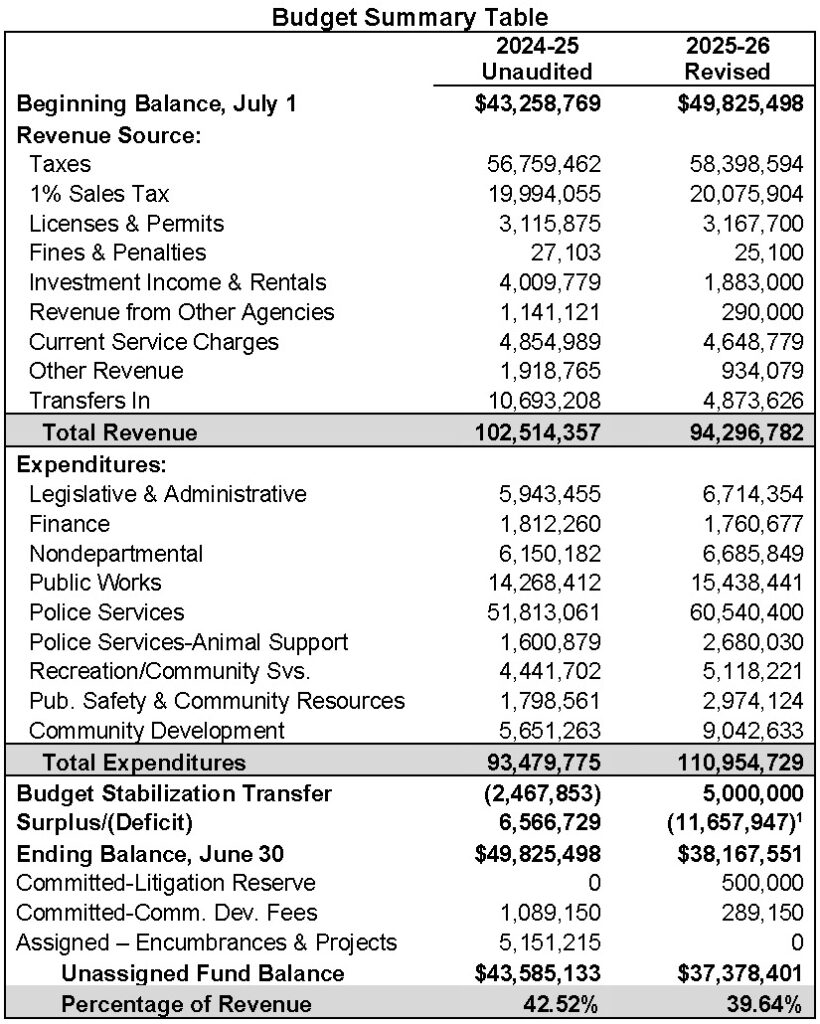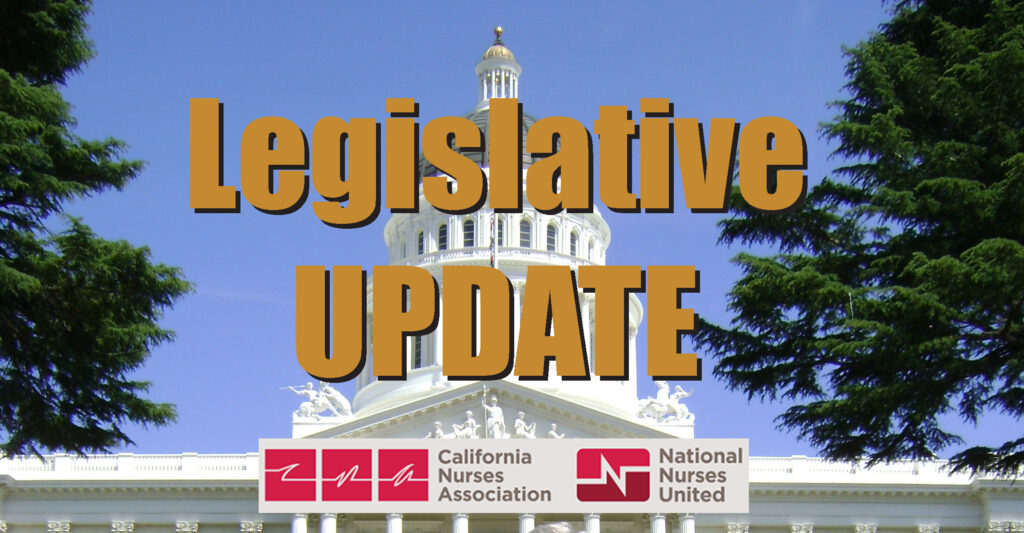Antioch Police Officers also complain about lower pay compared with other agencies
Tuesday, February 3rd, 2026
Include Dispatchers in public, social media campaign for new contract
“150 days out of contract and no relief in sight.” – APOA
APD Management also out of contract but working under previous one
So far, six Closed Session Conferences with Labor Negotiators held
Share Barbanica’s social media post regarding concerns about City spending more money on another homeless hotel
By Allen D. Payton
Ignoring the advice of City Manager Bessie Scott to Antioch Police Officers Association has continued their public campaign regarding the lack of a contract with the City since the end of August with an added complaint of the difference in pay with other local agencies. They’ve included Dispatchers’ pay in their list of complaints and with posts on their Facebook page and Instagram account as part of their campaign.
Antioch PD Among Lowest Top Step Hourly Pay in County
In a post on the organization’s Facebook page on Friday, Jan. 30, 2025, they show a chart of top step hourly pay for police officers for 17 agencies in Contra Costa County plus, BART Police. It shows Antioch PD has one of the lowest levels of pay. Their contract used to include a requirement that they be paid the second highest in the county, as Antioch is the second largest city by population. But now, 14 other police agencies offer a higher top step pay than Antioch which offers $67.56 per hour. Neighboring agencies pay more with Oakley PD at $69.93, Brentwood PD at $69.89 and Pittsburg at $69.69. San Ramon PD offers the highest top step pay in the county at $77.81 per hour.

Antioch Dispatchers Also Affected
In a separate post on Saturday, January 31st, the APOA shared a video about Dispatchers’ pay and wrote, “The lack of a contract for the APOA is far more problematic than you may have thought. The pay gap extends to our members in dispatch as well! 150 days out of contract and no relief in sight.”
The video includes an audio narrative with subtitles which reads, “Every call for help in Antioch starts the same way. With a dispatcher answering the phone. But here’s the reality. Antioch police dispatchers are significantly underpaid compared to neighboring agencies.
“Dispatchers at the Contra Costa County Sheriff’s Office and Pittsburg Police earn nine thousand nine hundred dollars more per year than Antioch. Concord dispatchers make twenty-two thousand four hundred four dollars more. Pleasant Hill pays seventeen thousand eighty-eight dollars more. Richmond dispatchers earn twenty-six thousand six hundred seventy-six dollars more annually. Walnut Creek pays seventeen thousand nine hundred seventy-six dollars more. Brentwood pays twelve thousand five hundred sixty-four dollars more. And Martinez pays sixteen thousand forty-four dollars more than Antioch.
“These aren’t small differences. They’re life-changing pay gaps. And they come with real consequences. When experienced dispatchers can earn tens of thousands more by crossing city lines, recruitment suffers. Retention suffers.
“Antioch dispatchers are working understaffed and often work sixteen-hour shifts to cover the empty spots. That means fewer dispatchers, longer wait times, increased stress, and heavier workloads for those who stay.
“If Antioch wants to recruit and retain skilled dispatchers, pay must reflect the responsibility of the job. That means a meaningful contract with competitive salaries. Because when dispatchers leave, everyone in this city feels the impact.”
In addition, APOA has been posting more videos on their Facebook page and Instagram account as part of their campaign.
Antioch Police Management Also Out of Contract
Members of the Antioch Police Sworn Management Association were asked if they have a new contract with the City and if theirs also expired at the end of August. Captain Desmond Bittner responded, “It expired the same time as APOA’s. I had them (the City) add language saying the contract will continue until we worked out a new one.”

Share Former Councilman Barbanica’s Post About City Expenditures for Homeless
The APOA also reposted comments by former Antioch Councilman Mike Barbanica about the City considering spending funds on another homeless hotel writing, “We want the public to see where their money is going!”
In a post on his “Community Member” Facebook page, Barbanica, a former Pittsburg Police Lieutenant, showed a photo of the now closed Comfort Inn, located on Mahogany Way at Highway 4 and Auto Center Drive and entered the discussion writing, “$1,200,000 potentially every year, local taxpayer funded…up to 15 years…
If other funding falls short, Antioch taxpayers are on the hook!
Transparency note: I didn’t author this from a single document. I reviewed staff reports, press reports, spoke with several people familiar with the proposal, and used AI to help compile a neutral, fact-based outline so the numbers could be seen clearly. The goal here is clarity, not advocacy.
Here’s the total City of Antioch financial commitment for the proposed Homekey+ housing project if it is approved and funded by the state:
1. One-time Local Match – The city would provide a one-time contribution of $750,000 toward acquisition and rehabilitation of the property when the Homekey+ award is received.
2. Annual Operating Subsidy – The City would commit up to $1.2 million per year to help operate the facility.
3. Duration of Operating Support – That annual subsidy is for five years, with two optional extensions of five years each (for a potential total of 15 years of subsidy) if the project continues to meet Homekey+ program guidelines.
4. Overall Total Estimate – Based on the staffing report and Council discussion, the total projected financial commitment over the long term is roughly $18 million–$19 million if you include the operating subsidies plus the one-time match (i.e., ~$1.2 M × 15 years = ~$18 M, plus the ~$750 K match).
Summary of Antioch’s Commitment if Homekey+ is Approved
Component Amount
One-time contribution (acquisition/rehabilitation) $750,000, Annual operating subsidy Up to $1.2 M per year
Duration of subsidy 5–15 years (with extensions), Approximate total over full life ~$18 M–$19 M
Important Notes
This commitment only takes effect if the state awards Homekey+ funding and the City moves forward with the project after award.
The operating subsidy requirements could be reduced if alternative funding sources or partners contribute support, but the report assumes the full amount will initially be covered by the City.
WHAT COULD THIS MEAN?
The $1.2 million per year is a CITY / local commitment, not state money.
Now the break down so there’s no ambiguity.
Who pays what in the Antioch Homekey+ project
State of California (Homekey / Homekey+)
Through California Department of Housing and Community Development:
Pays up-front capital costs: Property acquisition, Rehabilitation / conversion, This is a one-time grant, not ongoing funding,
The state does NOT commit to covering long-term operations.
City of Antioch (local funds)
From Antioch: One-time local match, $750,000 (city funds), Annual operating subsidy, Up to $1.2 million per year, Initially 5 years, With two optional 5-year extensions, Potential exposure: up to 15 years
This money comes from local sources: City General Fund, Measure funds / local housing allocations, Other city-controlled revenue (not guaranteed state funding), The staff reports are explicit that the City is responsible for covering operating shortfalls if other funding does not materialize.
What that means… The state helps buy and convert the building, The city commits to keeping it running, If other funding falls short, Antioch taxpayers are on the hook, That’s why council members and staff describe it as a long-term fiscal obligation, not just a grant.”
—————
Six Closed Session Conferences with Labor Negotiators to Discuss Contracts
To date, the City Council, City Manager Bess Scott and a representative from the City Attorney’s Office have held six Closed Session meetings entitled Conference with Labor Negotiators with representatives of the APOA and City employee groups to discuss their contracts. The first one was held August 12 followed by additional meetings on Aug. 26, Sept. 9, Oct. 14, 2025, and Jan. 13 and 27, 2026.
Questions for APOA, City Staff, Council Go Unanswered for Now
Questions were asked of APOA leadership, when did negotiations begin and who represented the organization.
Questions were also emailed on Saturday, January 31st, to City Manager Scott, Mayor Bernal, the four council members and the City Attorney’s Office staff. They were asked, “Why wait so long to begin negotiations when the contracts for at least the APOA and APD Management Association ended on August 31st? Is that usual practice? Why not start sooner? Why didn’t you have meetings before every regular meeting to get things worked out?”
They were also asked, “Besides the APOA and APD Management Association, have the contracts also expire for the other employee groups, including the Management Unit, Treatment Plant Employees’ Association, Operating Engineers Local Union No. 3 and Confidential Unit? If not, when do their contracts expire?”
Finally, the council and staff members were asked, “How long are the new contracts expected to last? One year, two, three or five years?”
The questions were resent to City staff and council members early Tuesday morning, Feb. 3, 2026. But no responses were received prior to publication time. Please check back later for any updates to this report.
































